Friday is a big day for 13 students at Greymouth High School – and not just because it’s the last school day before the weekend. On Fridays the students spend all day studying Conservation for NCEA Level 3 with teacher Lara Thompson. And that means they often get to study outside the classroom.
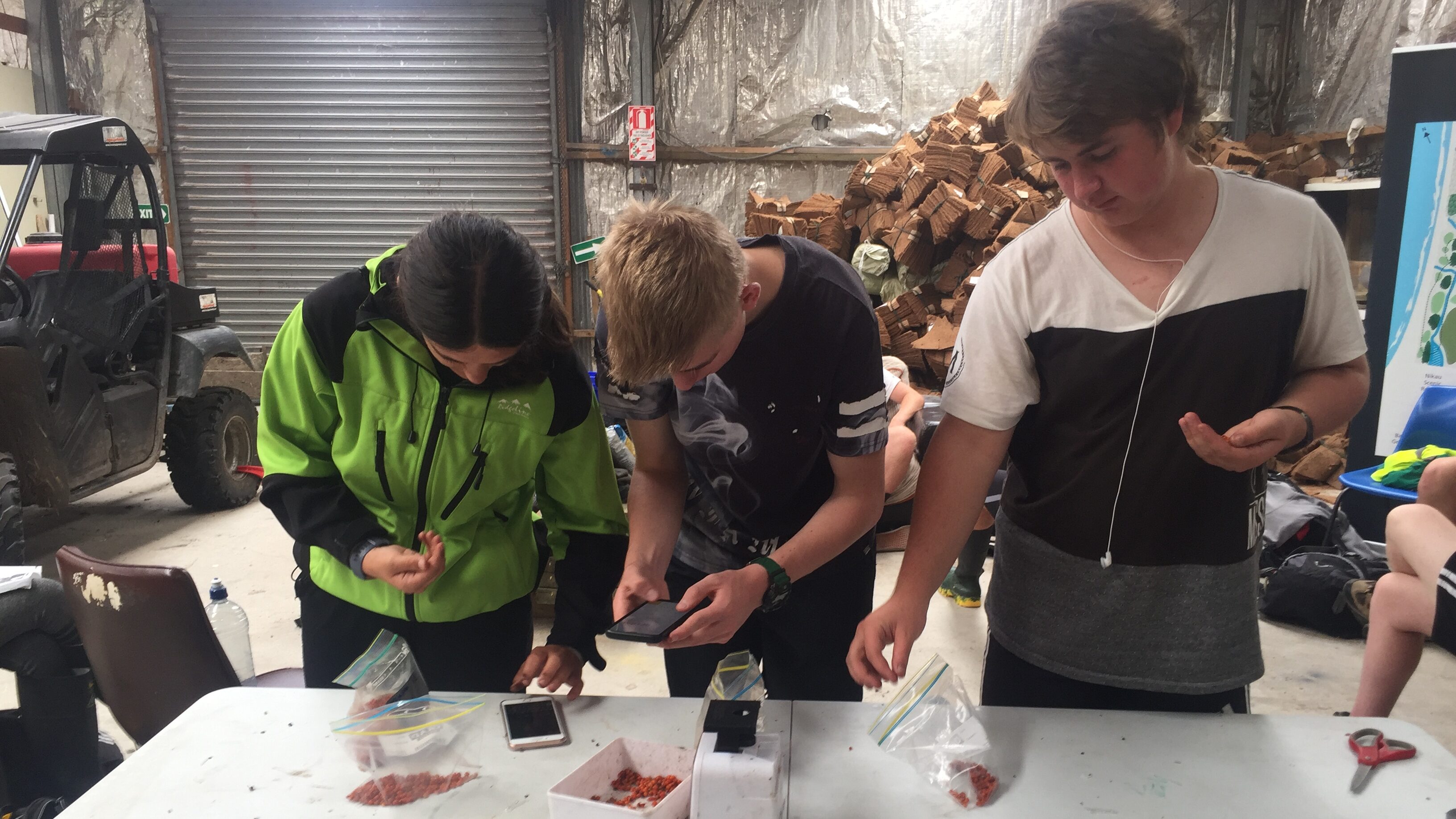
“Not all of the students were into conservation initially,” says Lara. “Some enrolled just because they wanted to spend time outdoors and learn by doing. But now they all have a real passion for conservation. I can see a real difference in the group in how they see and say things. They love conservation!”
The Conservation course has been developed in partnership with Papa Taiao Earthcare, a company that has been involved in supporting ‘Education for Sustainability’ since 2012.
“Last year was the first year of the Conservation class at Greymouth High School and we put Conservation in as a timetabled subject,” says Lara. “It was a big success with the students in terms of grades and student engagement. So this year we turned it into a trades academy course, run through the West Coast Trades Academy. It means we have more time on the subject, with 5 hours every Friday as well as another 3 hours scattered throughout the school week.”
The students spend time helping local volunteer groups, gaining conservation knowledge, developing practical skills and building strong working relationships with their wider community.
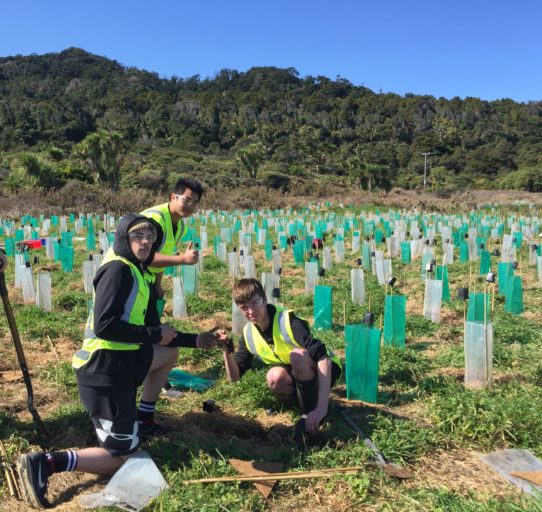
“We have partnered with Conservation Volunteers, visiting their Punakaiki Coastal Restoration Project to help with projects like replanting,” says Lara. “The Conservation class also spent a day collecting karamu berries (Coprosma robusta). We were going to soak the berries to get the seeds out and then germinate them for planting,” she explains.
Unfortunately Covid 19 interfered with that plan somewhat.
“We had just picked all the berries and then couldn’t visit Conservation Volunteers. So the next plan was to bring the berries to school to soak. Then we heard schools would be closing, so the students were each going to take some home to soak, but in the end, Conservation Volunteers were the real heroes and soaked the berries and extracted the seeds for us.”
The berries are small and each has maybe two seeds – so the painstaking effort was much appreciated. It’s just one example of the way West Coast locals are supporting the Conservation class and the benefits are two-way. Currently the students are busy making traps to sell to their community and learning some entrepreneurial skills along the way.
“In class the students were learning about different future sustainability issues,” Lara explains. “We talked about planting for restoration and the importance of birds for seed dispersal and that led to talking about trapping – because of pests eating plants and predators killing the birds that are needed for dispersal.”
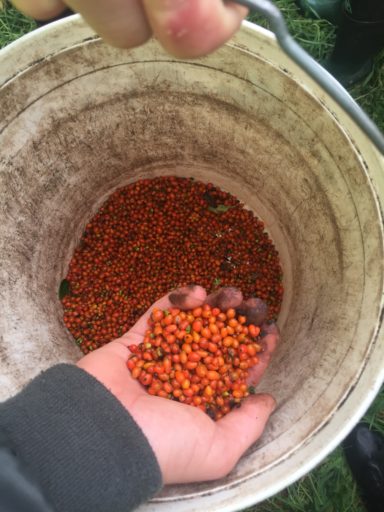
One thing led to another.
“In the Papa Taiao/Trades Academy programme, students ‘Take action to improve future sustainability’. They decide for themselves what they want to do. The students decided that tree planting was important, but predators and trapping are also important. The students said, ‘If it’s just us trapping it’s only a small thing’. They wanted to get more people trapping. So they decided to create a business called West Coast Pest Control. They sell traps and work with others in our community to build a culture of Kaitiakitanga on the coast.”
“It was quite timely,” says Lara. “The Government had just announced funding for a project to make Mt Te Kinga predator free.”
To date the students have built and sold about 15 modified Victor trap boxes and 15 DOC 200s to their wider community, adding each trap to the TrapNZ app – but they’ve now got a much bigger order on the books.
“We’ve just scored a contract with Coast Road Dawn Chorus who were looking for a local source of trap boxes for their DOC 150 traps. The students will build 100 boxes for them to put the traps in. The class has also offered to check one of Coast Road Dawn Chorus’s traplines,” Lara adds. “Coast Road Dawn Chorus contribute significantly to pest control along the coast and we feel privileged to work with them. There are heaps of people working together, all with the same goal. It’s got a real community feel.”
The Conservation class are also running their own trapline.
Organising their various trap-building and trapline checking activities is also helping the students hone their enterprise skills.
“The class have entered the Young Enterprise Scheme which involves 5 challenges,” says Lara. “The first challenge is to validate the product idea, after already identifying a problem and the solution. We had already identified the problem and solution. Through Covid19 lockdown, the students surveyed people online to work out what price the target market would buy traps at.”
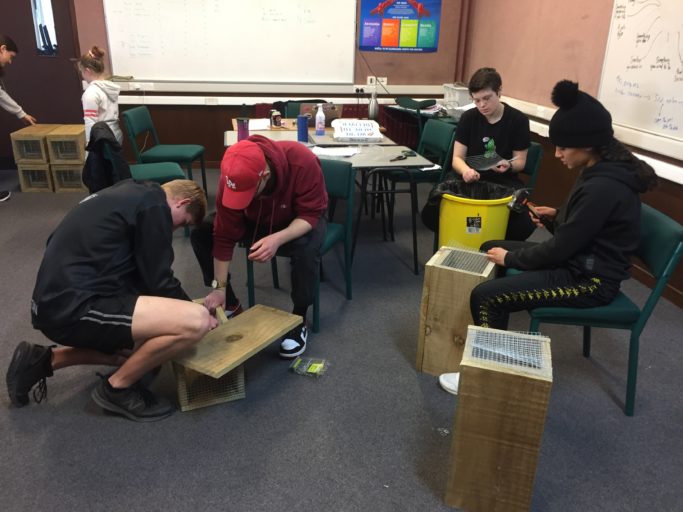
“The next challenge was to pitch their idea in a ‘Dragon’s Den’ type setting. They had to give a 5 minute speech about their idea which was hard,” Lara says, “Because they could have talked for 30 minutes!”
The third Young Enterprise Challenge is marketing, which the team are working on at the moment. They’ve set up a Facebook page and, through the Young Enterprise scheme, have free access to an online store to sell their traps.
“There’s been a lot of community support,” says Lara. “Teachers have bought traps and the class ran a competition for locals to win a trap. We sent a trap down to Hurunui Jacks glam camping business. The traps are all around Greymouth.”
Once the team complete their 5 challenges, the team with the most points will compete at a regional level (involving West Coast and South Canterbury school teams), with regional winners going on to the finals in Wellington later in the year.
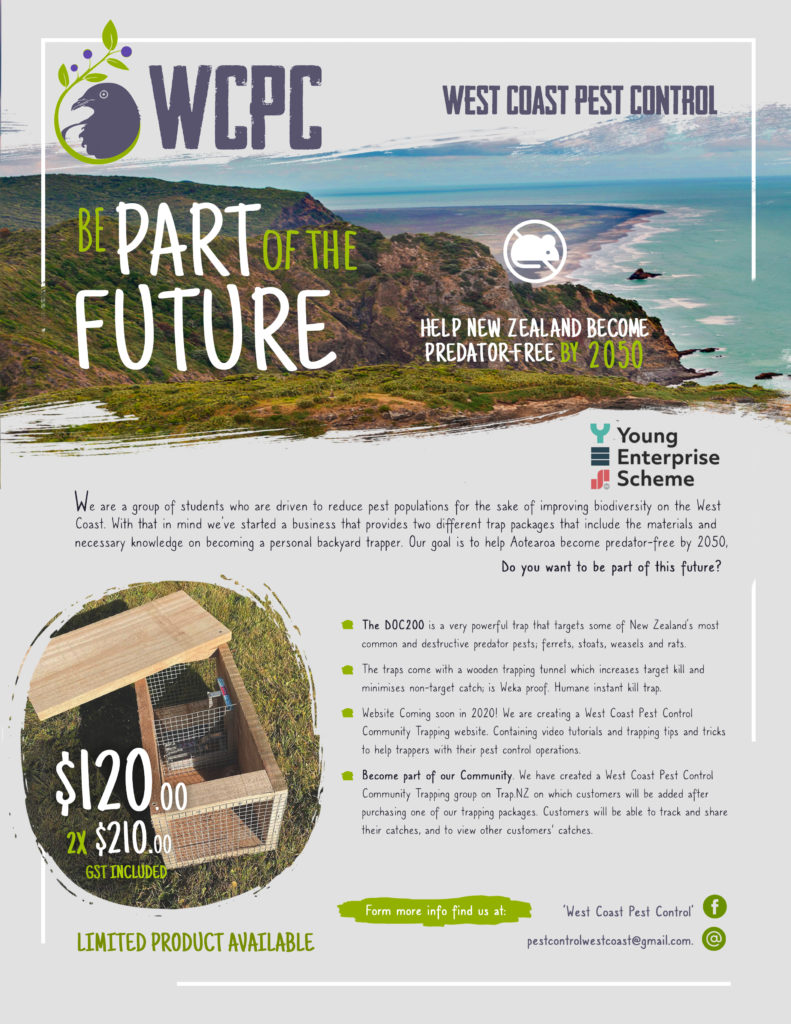
“Covid has been a challenge because of not being able to work in the outdoors,” Lara says, “But next week we’re going out with Conservation Volunteers again and we’re also going to be at Ag Fest, which had to be postponed earlier. Ag Fest is big on the Coast. It all adds to the students’ self-esteem to be contributing to conservation.”
Recently a group of young people from Future Leaders Greymouth spoke to the Mayor of Greymouth about the work our students are doing and now a meeting with the Governor General is in the diary for next month.
“It’s very uplifting and empowering for them, getting recognition for their work,” says Lara.
Lara and her colleagues are now planning to extend the Conservation studies programme even further. Next year the Year 13 Conservation class, based on the Papa Taiao sustainability and regenerative learning through enterprise model, will be open to all West Coast students from Karamea to South Westland, as is currently the case for other West Coast Trades Academy courses.
“We’re also going to create a Level 2 NCEA course for Year 11 and Year 12 students,” Lara says. “It will be a 2-year course that builds a pathway to NCEA Level 3.”
Hopefully the benefits to the students will extend well beyond their Year 13 final year at Greymouth High School.
“Here on the Coast we can’t rely on traditional jobs like mining and tourism. Covid 19 is impacting tourism now, but also weather events can close roads and then they can be shut for months, so tourism suffers,” Lara says. “This course is allowing the students to see there are jobs on the Coast that are sustainable.”
With the Government investing $1.3 Billion in Jobs for Nature it looks like the timing is perfect for students to graduate with skills and qualifications in conservation and regenerative enterprise. Read more about Papa Taiao Earthcare.

